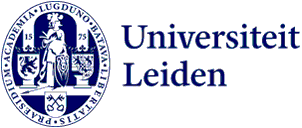
Big reduction in CO2 footprint in 2020 due to coronacrisis
The university's CO2 footprint - a visual representation of Leiden University's environmental impact - is calculated every year. The CO2 footprint for 2020 shows a striking break in the trend in terms of energy use, mobility and waste.
Findings
It appears that in 2020 the emission of CO2 (gross) reduced, in spite of the growing student population. This is not so surprising, however, because the coronacrisis has had a clear impact. The reduction is largely due to a decrease in the total electricity consumption, business flights and commuter journeys. The CO2 emissions are expected to increase again in the course of 2021.

Compensation
The university buys in green energy from Dutch wind supplies (HollandseWind) and what are known as Voluntary Emission Rights (VERs) to compensate for natural gas consumption and air travel. These give us a net zero CO2 emission. However, compensating for CO2 in this way is a temporary measure and is by no means a long-term solution. The university has a serious task ahead of it before it can be considered climate neutral according to the Paris climate agreements.
Objective
The university is aiming to reduce CO2 emissions in two steps: a 65% reduction in 2030 and then a 95% reduction in 2050 (compared to 1990, the reference year). This mean that university energy consumption must be limited to 70 kWh per square metre and has to be completely free of natural gas.
Future plans
Although the university has reduced its environmental impact considerably since 1990 and compensates for the remaining proportion, this does not mean that we have achieved our goals. We would still need the energy from seven extra windmills to generate all the electricity the university needs. As windmills are clearly not an option in the centre of Leiden, the focus is on the use of solar panels. Did you know, for example, that the lecture halls in the Gorlaeus building have the biggest area of solar roof panels in Leiden and that the university intends to make much more use of solar panels in the coming years? The university will generate over two million kWh of energy in the future, which is equivalent to the annual consumption of almost 600 households?
A lot of work is also being done on phasing out the use of gas in order to reduce the university's direct CO2 emissions. Greater use will be made of thermal energy storage (WKO) on the Leiden Bio Science Park in the coming years and a complete new system will be constructed at the new Humanities Campus. WKO allows the storage of residual heat in summer and residual cold in winter in the ground. The cold stored in the winter can then be used for cooling buildings in the summer and the heat stored in the summer will be used to heat the buildings in the winter months.
What can you do to help?
Leiden University has written a roadmap for how it intends to meet the requirements of the climate agreement. This means a 95% reduction in CO2 emissions used in heating, cooling, ventilating and lighting all our buildings by 2050. That is an enormous task. Our buildings are 'only' 40% of the university's total CO2 emissions, so much more is needed to become climate neutral. Faculties and departments will have to do their bit by being smart in how they use space.
Students and staff also have a role to play. Travelling outside peak times and using bicycles (electric or otherwise) rather than cars will bring about a significant reduction in CO2 emissions. When making purchases, it is important to be aware of the materials items and their packaging are made of. It would save an enormous amount of energy if these materials can be separated and recycled. To help with this, appropriate waste containers are provided in and around all university buildings, although, obviously, preventing waste will have the biggest effect. In the interests of reducing the use of disposable bottles, ‘Join the Pipe’ drinking water taps have been installed in all buildings.
